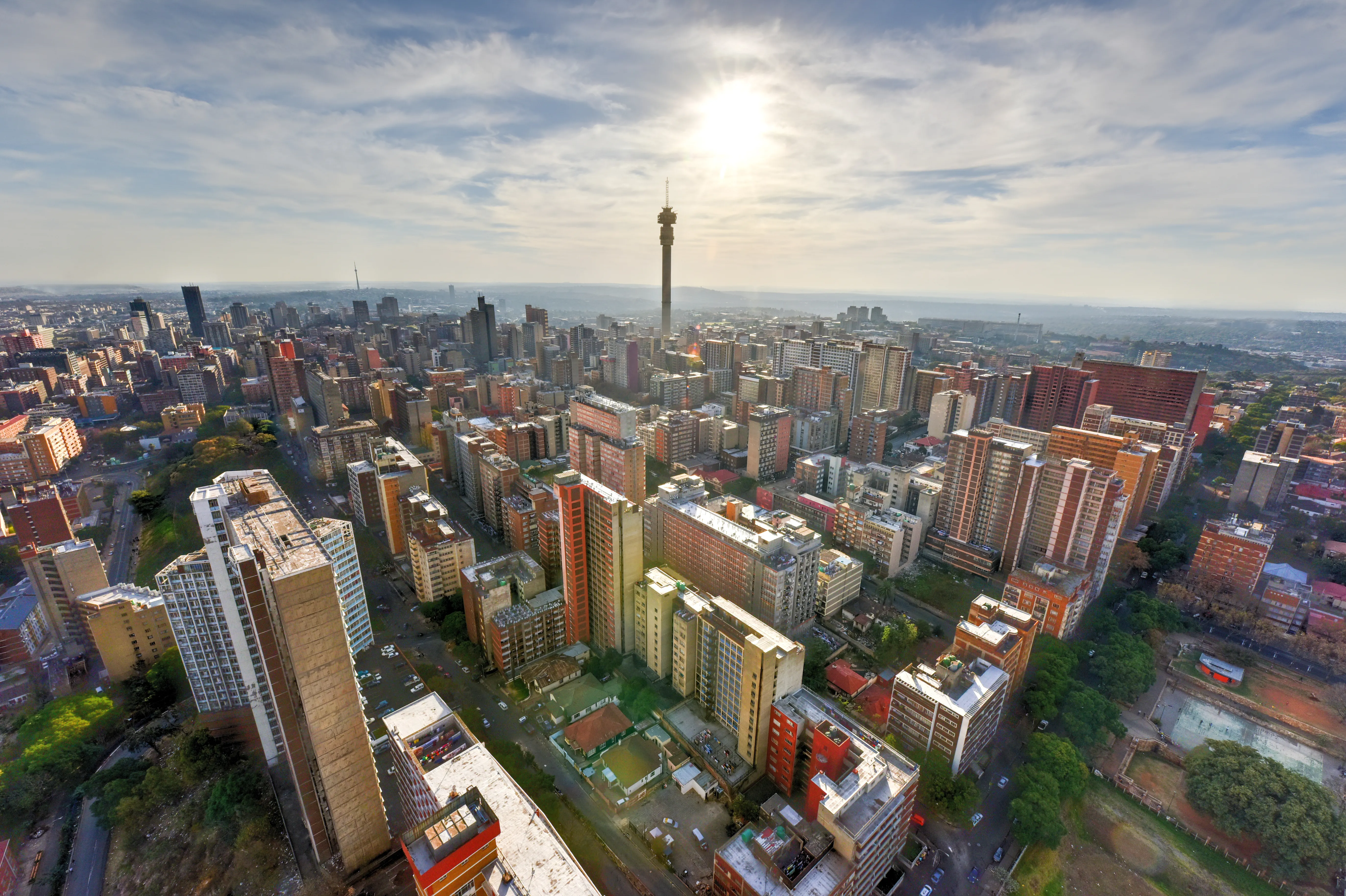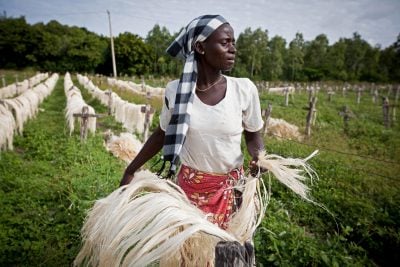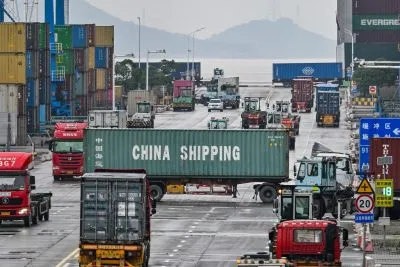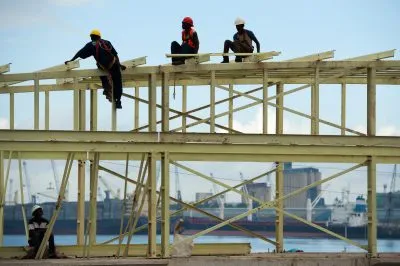At first sight, our survey of the Top 250 biggest listed companies in Africa suggests that they have endured a difficult year. Combined market capitalisation has fallen considerably since our 2022 survey, from $701bn to $561bn, and is well below the record $948bn achieved in 2015.
The 2022 figure represented, however, a strong recovery from the low of $556bn recorded in 2020 at the height of the Covid-19 pandemic. Many companies enjoyed a temporary bounce from the release of pent-up demand. Yet this year’s market capitalisation has drifted below the lows of the pandemic – and much more needs to be done to support the growth of a vibrant private sector across the continent.
Our table (see below) is based on market value at the end of March 2023 (see below for our methodology). As always, many of Africa’s biggest companies, including state-owned firms and those held in private hands, are not included because they are not listed on any stock exchange.
According to a recent McKinsey study, of the 438 African companies with revenues in excess of $1bn, 60% were privately owned and 25% were subsidiaries of foreign-domiciled multinationals.
The continent’s biggest oil firms, such as Sonatrach from Algeria and Sonangol from Angola, would be among the very largest companies if they were listed. The Angolan government has pledged to list Sonangol on the Angola Stock Exchange, but the timetable for this has repeatedly slipped and the current target date is in 2027.
Read our regional rankings
- East Africa’s Top Companies in 2023
- North Africa’s Top Companies in 2023
- Southern Africa’s Top Companies in 2023
- West Africa’s Top Companies in 2023
South African companies still dominate
The lion’s share of this year’s fall is due to big drops in the value of South African stocks, from $488bn to $375bn over the past year. The position of South African companies within the pan-African corporate landscape is particularly interesting.
Stock values on the Johannesburg Stock Exchange (JSE) have tumbled in dollar terms over the past year through a variety of factors, including the falling value of the rand; the underlying weakness of the South African economy; and the impact of low infrastructural investment on power supplies and transport reliability. This is reflected in our survey, with the number of South African entries in our Top 250 falling from 133 last year to 96 in our 2023 rankings.
However, it is important to note that cyclical fluctuations in demand for mining commodities have also played a role. Commodity prices soared as the Covid-19 pandemic and associated lockdown measures were lifted, driving up the value of the mining companies that comprise a significant proportion of the JSE. For instance, the value of the highest-ranked mining company in our table, Anglo American Platinum, jumped from $11.3bn in March 2020 to $38.6bn in 2021 and then $36.4bn the following year, before crashing to $14.2bn this year, with its value mainly determined by wide fluctuations in global demand.
The total value of the Top 250 was also affected by several delistings, notably South Africa’s Massmart and Danone Centrale in Morocco. The lack of medium-term growth in the value of Africa’s biggest corporations is, however, also partly a function of general African economic trends, with the optimism generated by moderately robust growth in the first part of the new millennium giving way to more patchy growth punctuated by a handful of stronger growing economies.
The lack of progress is also reflected in the lack of strength in depth. The 250th position in our rankings was achieved with $394m in 2018; but that figure fell this year to the $229m valuation of Cleopatra Hospital in Egypt.
Despite continued weak economic growth in South Africa, the country’s 96 corporations listed in our table of the continent’s Top 250 companies completely dominate it, taking 67% of its entire value this year, with combined market capitalisation of $375bn out of the $556bn total for the Top 250.
Nine of the top ten slots in our table are filled by South African companies, with only telecoms company MTN Nigeria intruding into a perfect ten, while 15 out of the top 20 are South African. Of the remaining five, three are Nigerian and two Moroccan, which fairly reflects the balance of power in our overall table.
Top position retained
Internet and multimedia company Naspers leads our table with market capitalisation of $81bn, up from $50bn last year, although still down from a high point of $104bn in 2021. Naspers also has the highest net income by a long way, with $12bn, ahead of Anglo American Platinum with $2.7bn. However, analysts have suggested that some of the company’s operations may have little room for growth in its domestic market.
Naspers moved to the top of our pan-African rankings in 2016 following the purchase of a 33% stake in Chinese tech and entertainment company Tencent – but now plans to sell off some of its stake to fund a planned share buyback.
Its stake in Tencent was worth about $100bn at the start of the year, but the company’s share price on the JSE lies significantly lower than its net asset value per share, because of its complicated dual system of voting rights, which reduce shareholder influence on the company’s operations.
It is easy to attribute big changes in market value to the circumstances in specific sectors or countries, yet the next two firms in our list have enjoyed very different years. FirstRand moves up one place to second, despite a big fall in value from $30bn to $19bn, with fellow South African bank Standard Bank rising two positions to third with $16bn, from $21bn last year, representing a far more modest fall.
Beyond South Africa
South Africa’s continued dominance of the African corporate landscape obviously means that the rest of the continent appears – and indeed is – underrepresented in our rankings. North Africa accounts for 14.3% of the value of our table, followed by West Africa with 11.4% and East Africa 3.3%. We analyse the balance between the various regions in depth in our regional analysis.
The next biggest markets by combined market capitalisation are Nigeria with 9.3%, Morocco with 8.8% and Egypt with 4.7%. There is not a single entrant from Central Africa, and some individual countries are conspicuous by their absence, including Algeria, Ethiopia and the Democratic Republic of Congo (DRC). State control largely explains the first two, while many of the biggest economic enterprises in the otherwise underdeveloped DRC are foreign mining companies.
Considering companies in Southern Africa excluding South Africa, Mauritius is the next most important country in the Top 250, with six companies and 1.3% of market value, an increase of 2 percentage points. It is followed by Namibia with seven entrants and 1.2%, also up 2 points on last year. The remaining Southern African companies come from Malawi (7), Botswana (3), Zimbabwe (3) and Zambia (2). It might be expected that Zambia would enjoy stronger representation – but its large mining sector is dominated by foreign companies.
New entrants
There are 23 new entrants in our table this year. Many of these are making a return to the ranking after one or more years out of it. Two are complete newcomers and achieve a far higher ranking than the others – because they are the result of initial public offerings (IPOs). Orange Côte d’Ivoire, which has a 35.5% share of the Ivorian mobile market, comes in 53rd position with a value of $2.3bn, following its IPO on the West African regional Bourse Régionale des Valeurs Mobilières (BRVM) in December.
The 9.95% stake in Orange Côte d’Ivoire listed by the Ivorian government raised CFA141.0bn ($233m), leaving it with just a 5% stake in the company. A spokesperson for the BRVM said that stakes in up to 100 West African state-owned companies could be listed, but there have been few in recent years: just two telecoms companies, Orange Côte d’Ivoire and Sonatel in Senegal, account for about 40% of the entire market capitalisation of the BRVM. Even the Orange IPO took six years to come to fruition.
Nigeria’s Geregu Power achieved a market value of $1.7bn, positioning it just 11 places behind Orange Côte d’Ivoire after listing by introduction in October. The first power generation company ever to list on the Nigerian stock exchange, its value jumped 10% to N275bn ($60m) on the first day of trading. Executive Chairman Femi Otedola said that “the listing of the company was the actualisation of a vision to bring world-class standards in governance, sustainability, and business processes to the company and the Nigerian electricity sector”, while “listing on the Main Board of the Exchange will ensure that the long term growth of the company is assured.”
If Geregu’s listing is deemed to be a success, it may persuade more of the country’s other power generation and distribution firms to seek a listing. The Nigerian power sector badly needs more investment, with IPOs an obvious means to secure more capital. The chief executive officer of the Nigerian Exchange Group, Temi Popoola, said: “This listing will enhance liquidity for Geregu, increase its visibility among global investors, elevate its value and boost transparency, as our marketplace is a sterling platform for raising capital and enabling sustainable growth for national development.”
Finance and resource sectors still dominate
Despite some diversification in recent years, many African economies remain reliant on the export of oil and gas; but this is not fully reflected in our rankings because these sectors are dominated by state-owned and foreign companies. This is less of an issue in the mining industry, which is classified in our table as non-energy materials: South African companies are particularly active in the sector. Indeed, Anglo American Platinum, Gold Fields and AngloGold Ashanti all make it into our Top 10, with Nigeria’s Dangote Cement just outside.
Finance still dominates our table, with 93 entries. Banking and financial services form one of the most vibrant sectors in Africa, with new digital banks, fintech and telecoms companies all providing competition for established banks. A majority of governments see the value of private-sector innovation in the industry, so most leading banks are listed companies.
There are some notable exceptions, including banks in Egypt. Here too it is South Africa that dominates, with FirstRand, Capitec, Standard Bank and Absa securing places in the Top 12 across the continent. However, Morocco’s Attijariwafa Bank moves up from 19th to 14th in this year’s table, with market capitalisation of $8.3bn. With its foundations as the biggest bank in the steadily-growing Moroccan economy and growing operations in the rest of the continent, it has the potential to jostle in among the big four South African banks in our table over the next couple of years.
Inelastic consumer demand
The next biggest sector within our Top 250 is consumer non-cyclicals – including food, utilities, pharmaceuticals and other goods whose consumption remains strong even during economic downturns. Fifty companies in this category are listed in our table, accounting for 24% of the table’s entire value. These include the biggest South African brands, including Naspers and South African supermarket chain Shoprite, plus Nigeria’s BUA Foods.
This is followed by the buoyant telecoms industry, with South Africa’s big two – Vodacom and MTN Group – ranked fourth and sixth on the continent respectively, although they have swapped places since last year. Just 20 telecoms firms make it into our table but they are generally big firms that operate in numerous markets and account for 13% of the value of the Top 250.
These four sectors – finance, consumer non-cyclicals, non-energy materials and telecoms – account for 89% of the value of our Top 250, highlighting the lack of diversification among Africa’s biggest corporations. There are just seven energy companies on the list; two technology firms; and not a single manufacturing company, despite the fact that manufacturing has long been mooted as an obvious means to propel economic growth figures across the continent. Indeed, with wages rising and other costs increasing in China, many manufacturing companies have been switching their production capacity to other parts of the world. While much of southeast Asia has benefited from this trend, Africa has largely missed out.
As a result, African manufacturing success stories are rather few, though Morocco and to a lesser extent Tunisia have made the most of their geographical location on the fringes of Europe to attract factories designed to supply European customers.
The Ethiopian textiles industry is expanding, and South Africa is earning a growing reputation as an automotive manufacturing centre. The continent’s failure to become more important in global manufacturing to date is in large part the result of infrastructure shortcomings – but there is still huge potential waiting to be exploited in the future if the required conditions can be put in place.
Methodology – who we include in the ranking
The African Business Top 250 Companies survey focuses on the biggest companies on Africa's stock exchanges, with the ranking determined by the market capitalisation (total value of the listed shares) at 31 March 2023. The market capitalisation is converted into US dollars on the same date. We thank Ayo Salami of Emerging Markets Investment Management Limited for assistance with collating data.
Some of the African giants not in the Top 250 ranking are government-owned companies, including state-owned enterprises such as Commercial Bank of Ethiopia and Sonangol in Angola. Last year, following negotiations with the IMF, Egypt again promised privatisations of state- and military-owned companies.
The Top 250 survey excludes companies that have African heritage and roots but no longer earn at least 50% of their revenues in Africa. One significant example is Prosus, which emerged as Europe’s largest listed consumer internet company when it became an entity independent from its parent, South Africa’s Naspers. It listed on Euronext Amsterdam and the JSE in September 2019.
Companies with more than 50% of their revenues from Africa are excluded if they are not listed on an African stock exchange.
The biggest of these is Shenzhen Transsion Holding Co, listed in Shanghai, which makes mobile phones under the TECNO, Itel, and Infinix brands, as well as smart accessories and home appliances, and provides mobile internet services. It operates in Nigeria, Kenya, Tanzania, Ethiopia and Egypt as well as internationally. Its total market capitalisation fell from $25.6bn in 2021 to $12.1bn in 2022 and has recovered only marginally to $12.2bn. If Transsion had an African listing, it would be seventh in our ranking.
Several very large mining companies are also excluded because they are not listed on an African stock exchange. One example is London-listed Endeavour Mining, with a market capitalisation of $6.57bn, up from $6.2bn last year. It is a gold miner in Senegal, Côte d’Ivoire and Burkina Faso.
Another example is Canada’s Ivanhoe Mines, whose market capitalisation has fallen to $10.7bn from $11.3bn a year ago. Ivanhoe’s flagship Kamoa-Kakula project in Democratic Republic of Congo could expand to become the world’s biggest copper mine; it also has zinc and platinum projects.
In contrast, B2Gold is ranked 33rd – up from 38th last year – because it is listed on the Namibian Stock Exchange, in line with Namibian government policy to make locally active miners available to local investors.
The ranking also excludes the handful of African “unicorns” – tech startups that reach a $1bn dollar market value, but are usually not yet listed on any stock exchange. It omits real estate investment trusts and finance companies, because of the way they manage funds for unit holders. If, however, a company develops properties, then it can remain in the ranking, as does Travaux Généraux de Construction de Casablanca.
Want to continue reading? Subscribe today.
You've read all your free articles for this month! Subscribe now to enjoy full access to our content.
Digital Monthly
£8.00 / month
Receive full unlimited access to our articles, opinions, podcasts and more.
Digital Yearly
£70.00 / year
Our best value offer - save £26 and gain access to all of our digital content for an entire year!


 Sign in with Google
Sign in with Google 



